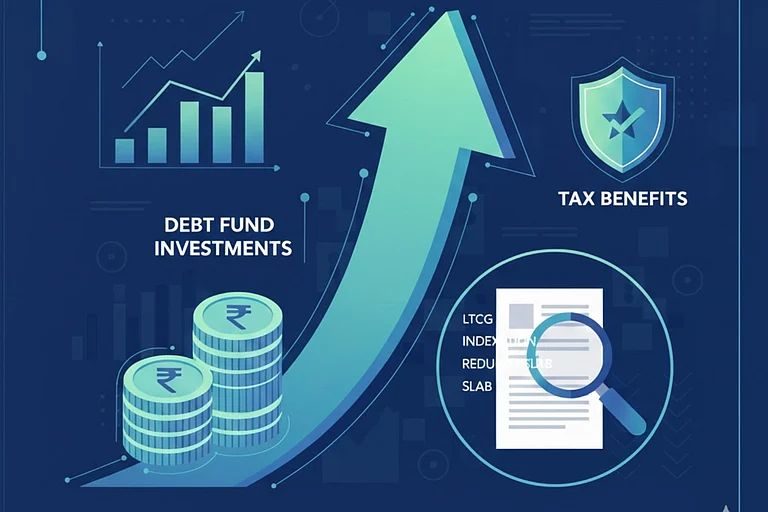
Summary of this article
Financial fragility occurs when an unexpected expense can throw your budget off balance. A medical emergency, job loss, or costly repair shouldn’t cripple your finances. Here are five practical strategies to strengthen financial resilience.
Financial fragility refers to a situation where even a single unexpected expense can throw your entire budget off track. For many households, a sudden medical emergency, the loss of a job, or an unplanned repair can feel overwhelming and cause long-term financial stress. True financial stability means being prepared for such shocks so they don't derail your overall progress.
In the Indian context, where rising living costs and limited social safety nets add to the challenge, building resilience becomes even more important. The following five methods can help you strengthen your financial foundations and move towards greater security.
1. Build An Emergency Fund
First of all, you need to build an emergency fund for a financial emergency. Save three to six months of living expenses in a separate savings account as your first priority. Your Rs 2,000 monthly contribution will accumulate to Rs 24,000 by year-end which will cover most emergency expenses without needing credit cards or personal loans.
"Many people rely on gold or family support during crises, but having liquid cash gives you independence and faster access to funds. The money should stay in a high-yield savings account or short-term FDs that let you withdraw funds within 24 hours. The emergency fund acts as a shield which stops you from getting into costly debt when you experience difficult financial situations," says Nikunj Saraf, CEO, Choice Wealth.
2. Diversify Your Income Sources
Relying solely on your salary makes you vulnerable to industry downturns and company layoffs. People can generate extra income through freelancing, tutoring, small business operations, and skill-based service work.
Start your weekend coaching business by providing translation services and selling products through Amazon and Flipkart. Earning even Rs 5,000 to Rs 10,000 as a side job will help you during times of financial stress. Your additional income streams have the ability to grow into major income sources, which will enhance your total earnings.
3. Keep Fixed Expenses Manageable
High EMI payments and fixed monthly expenses can severely limit your financial freedom. Your housing expenses need to stay below 30 per cent of your income, and your total EMIs should not go beyond 40 per cent of your monthly salary.
You should determine if you can handle loan payments after a 20 per cent decrease in your income before applying for any loan. Get rid of all your inactive subscriptions and memberships which you never use. Review your fixed expenses every three months to identify which services provide minimal value to your existence so you can remove them.
4. Maintain Good Credit And Eliminate High-Interest Debt
People with a high credit score receive better loan options and credit card deals. Even landlords will be more likely to rent to them. Maintain EMIs payment punctuality and keep your credit card usage under 30 per cent, and refrain from borrowing multiple loans at once.
"You need to focus on paying off your highest interest debt, like the credit card debt. The annual interest rates on credit cards, which range from 36 to 42 per cent, can create a situation where debt becomes unmanageable. The best solution to handle credit card debt involves getting personal loans with cheap interest rates, but you need to work toward debt freedom instead of just moving your debt around," suggests Saraf.
5. Invest In Skills And Insurance Coverage
Your earning ability is your greatest asset. Obtain professional development by enrolling in online courses and certification programs and workshops that match your industry requirements. The job market favors people who keep up-to-date with industry developments and technological advancements.
Your health protection needs to extend beyond basic employer coverage through proper insurance coverage. Medical emergencies can quickly exhaust savings if you're underinsured. Term life insurance is a must for people who have dependents, while disability insurance protects workers who perform dangerous physical tasks. These protections cost relatively little compared to the financial devastation they prevent.
Building Long-Term Security
Financial stability develops gradually through consistent habits rather than dramatic changes. Begin with the area that requires immediate focus between emergency savings development and debt reduction and income growth.
"Track your progress monthly and adjust strategies as your income and circumstances change. Your financial security depends on developing better money management skills because this will help you handle unexpected expenses, which used to cause major financial problems," says Saraf.
The main reason people become financially unstable during prosperous times is that they make excessive assumptions about their security. True stability comes from building safety nets during good times to protect against unexpected challenges.














